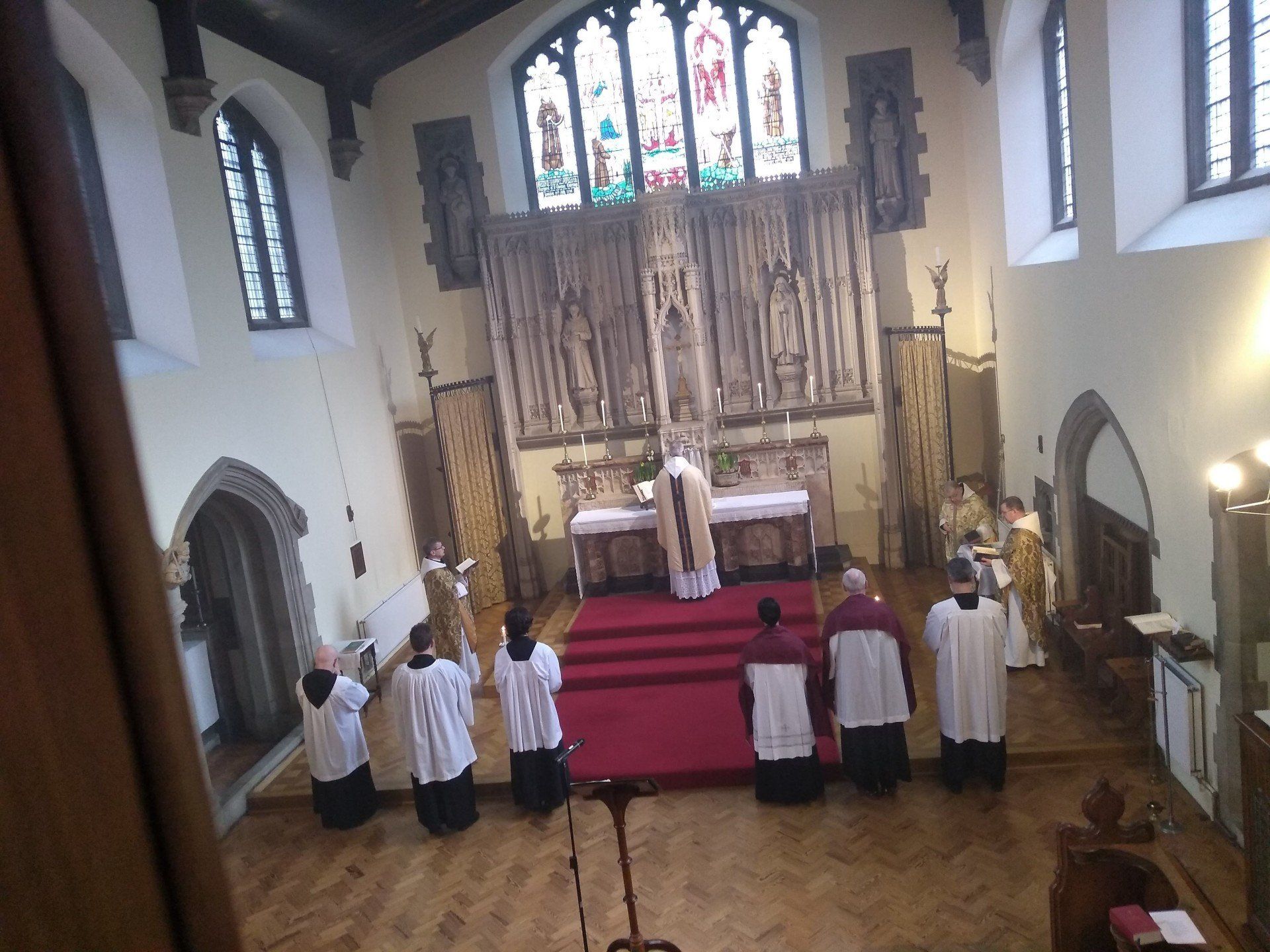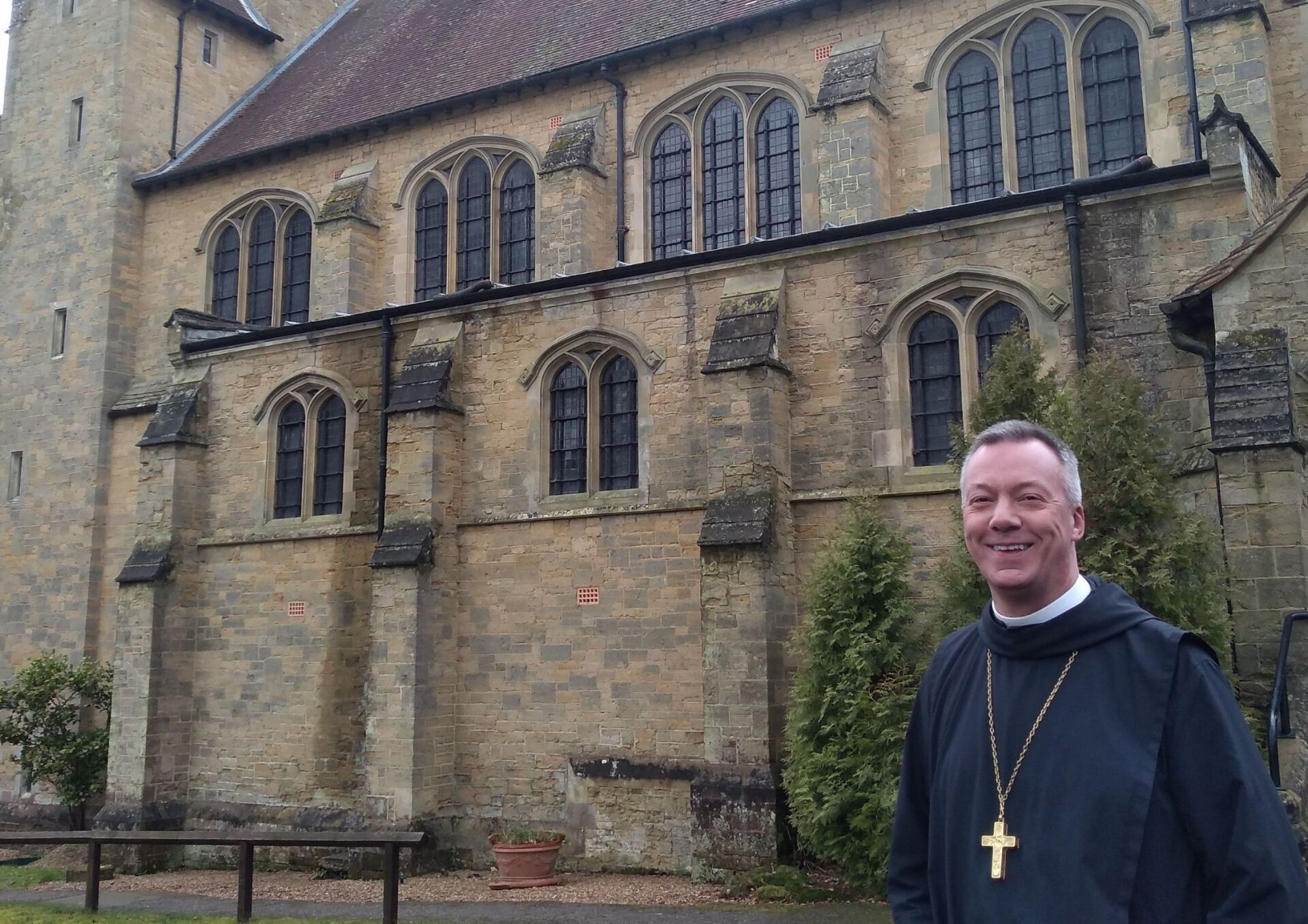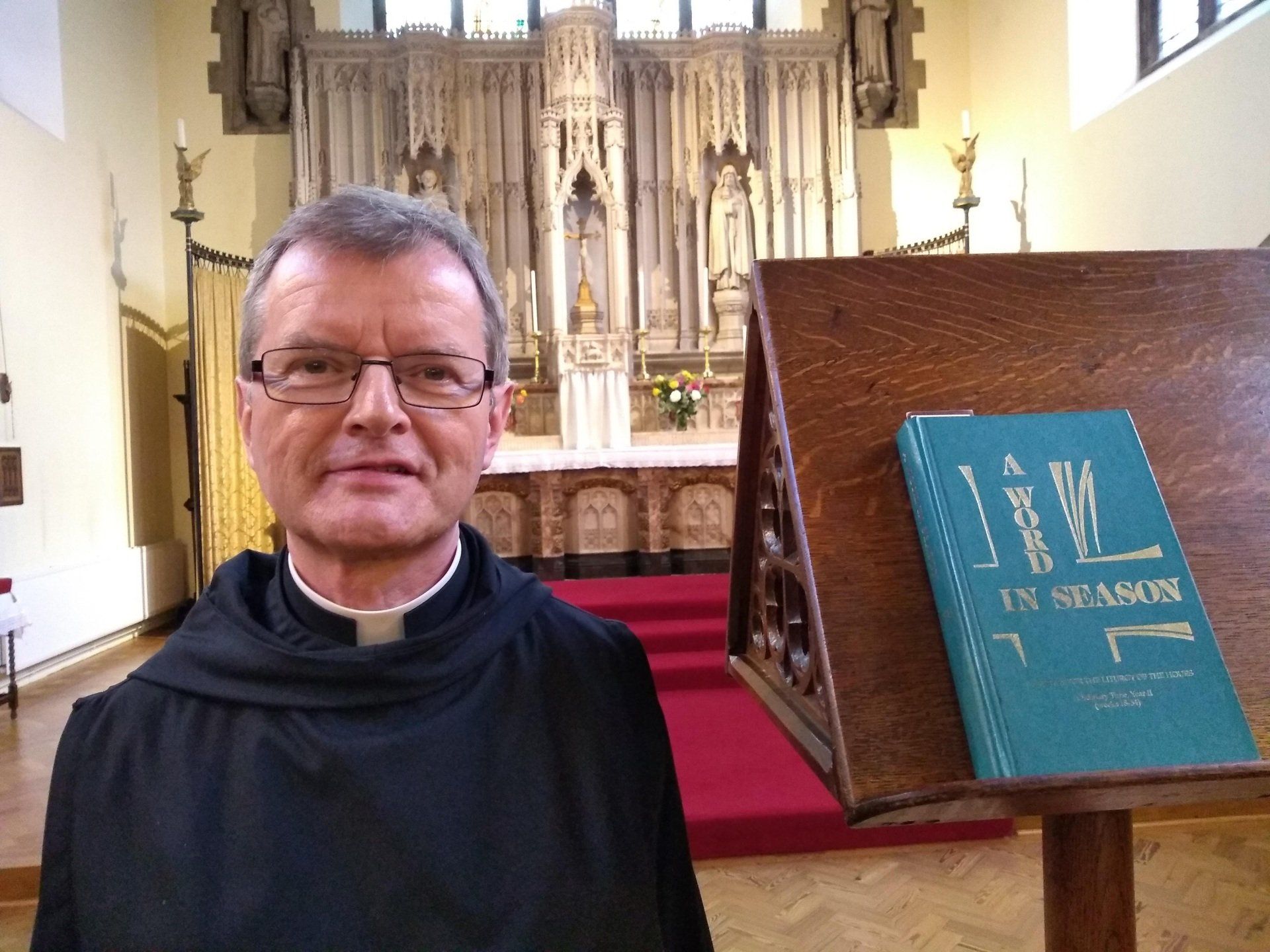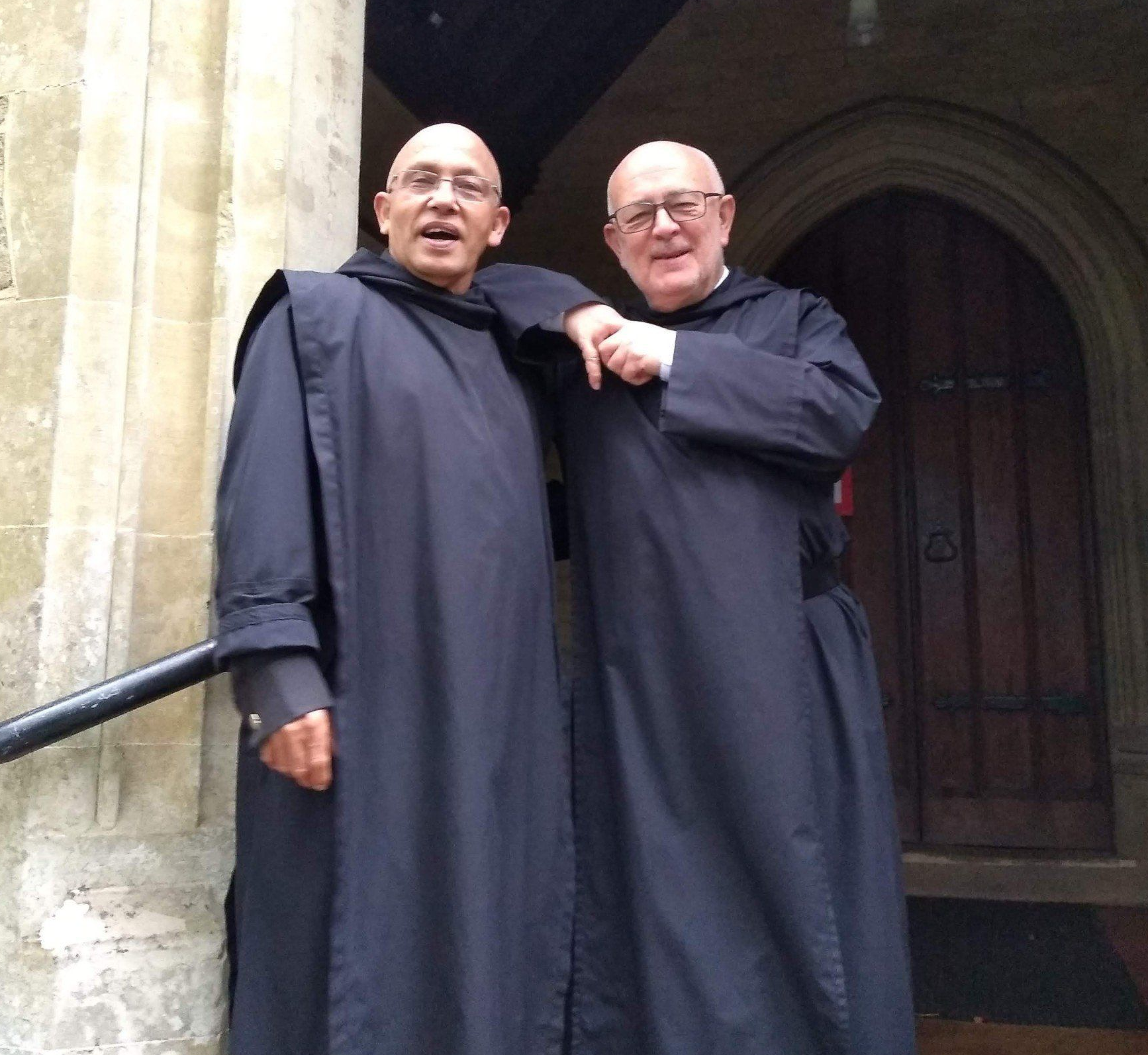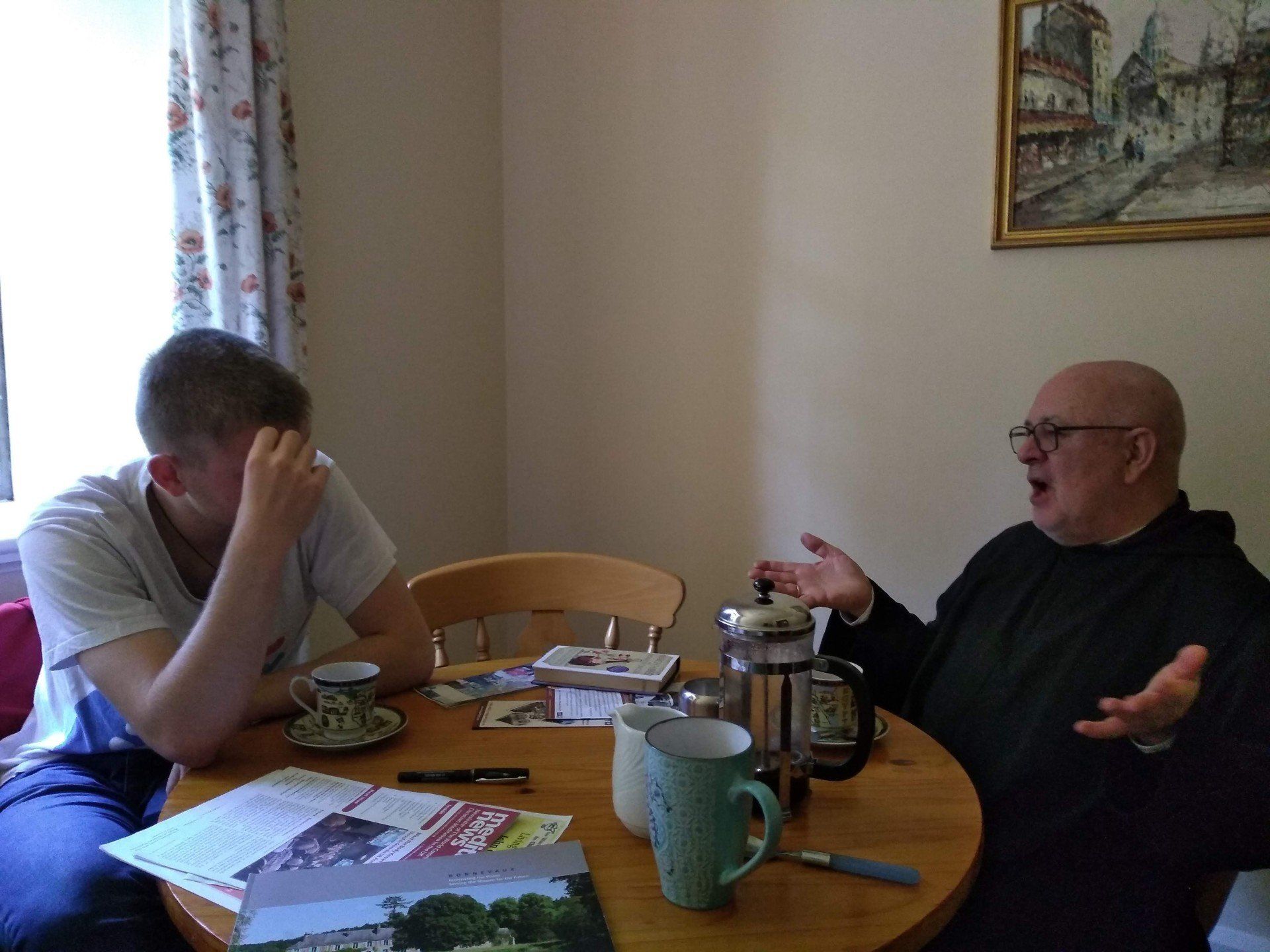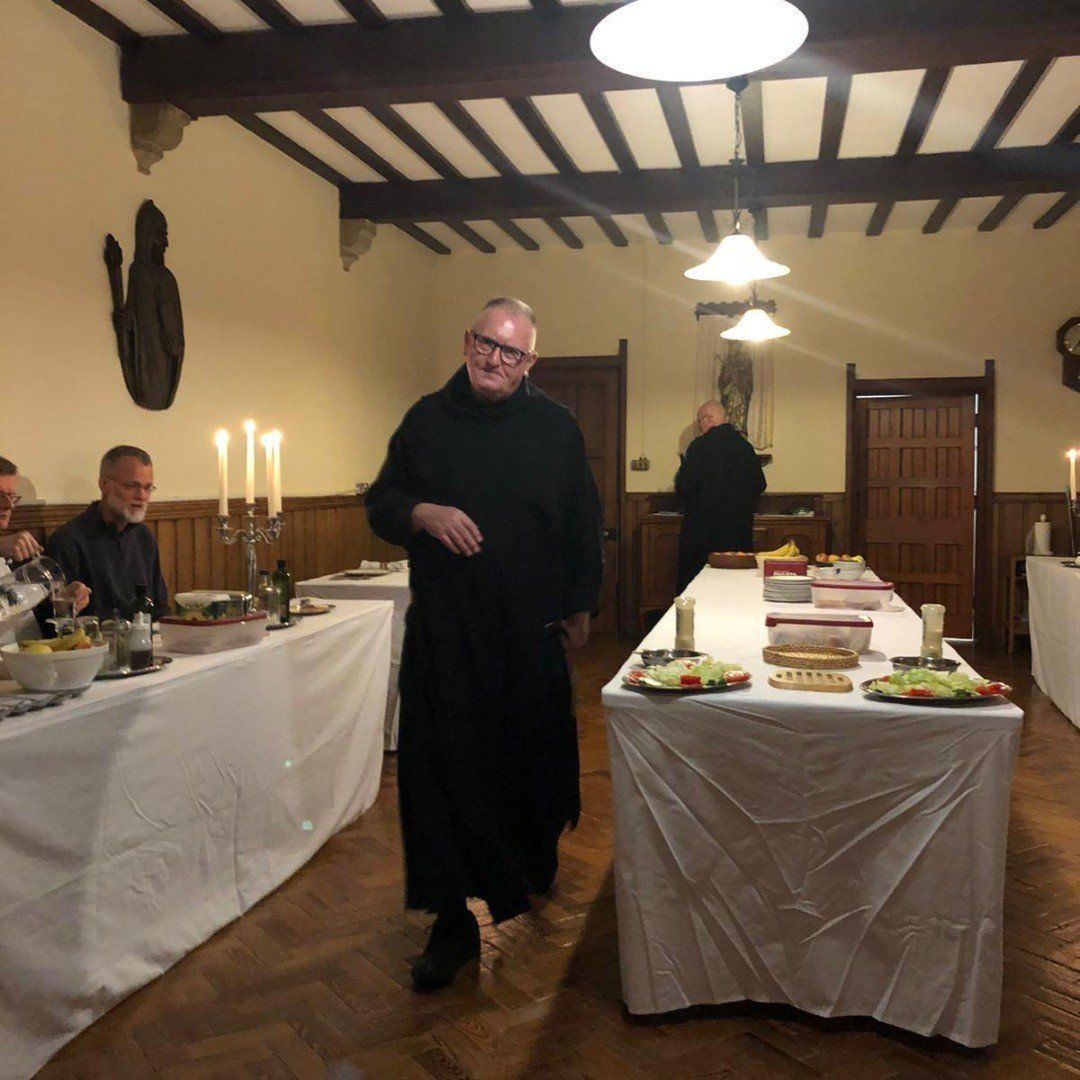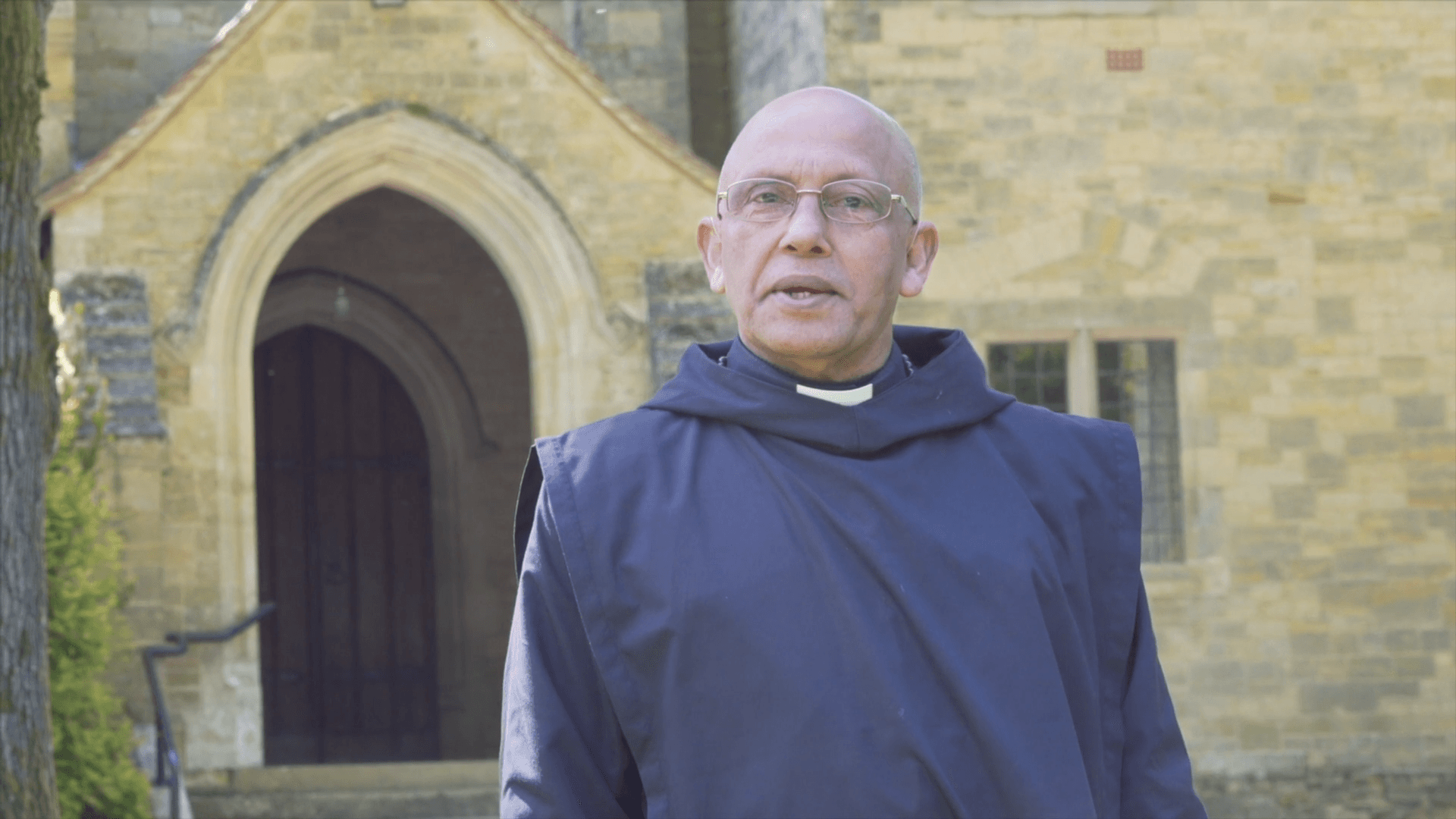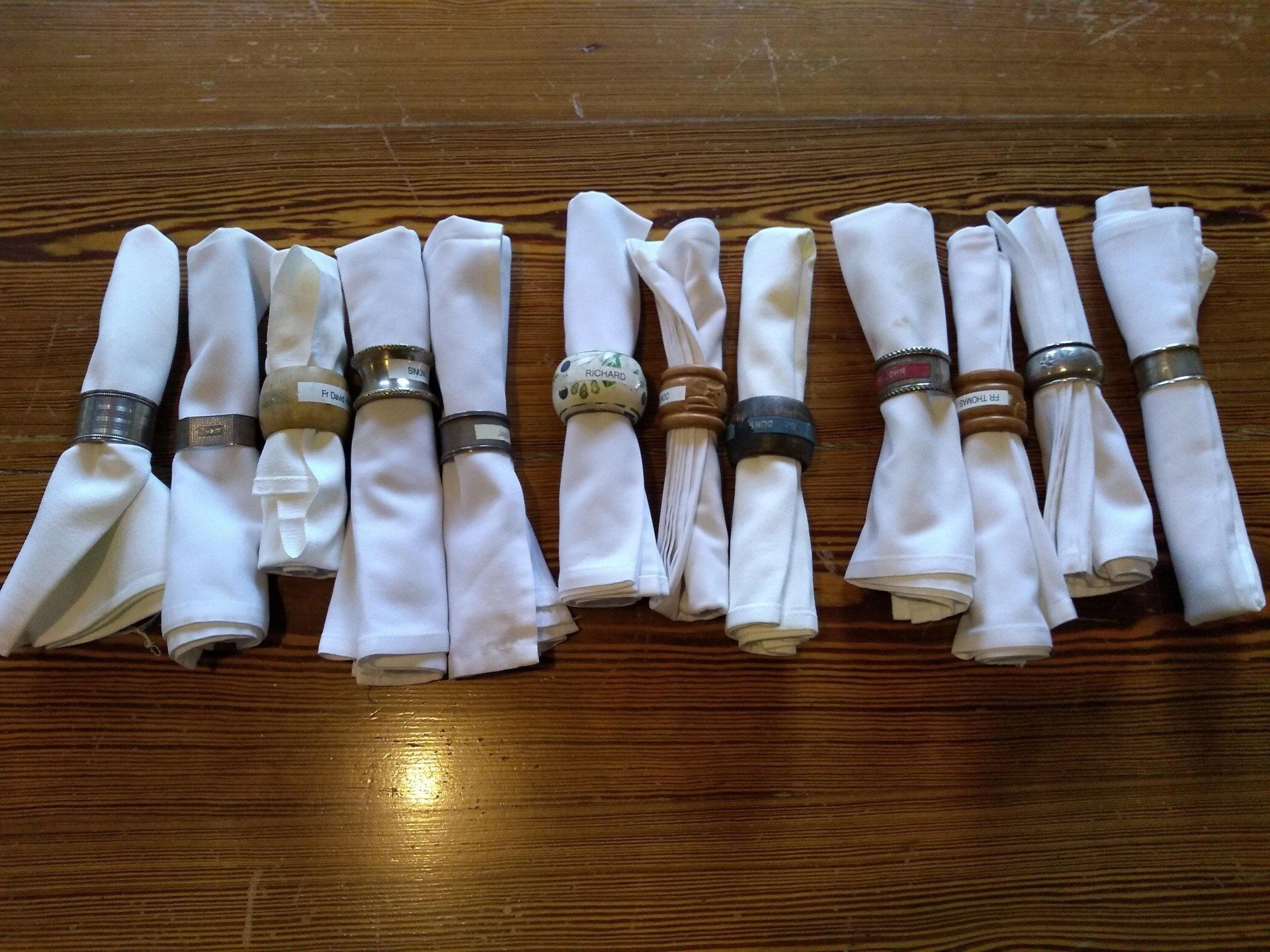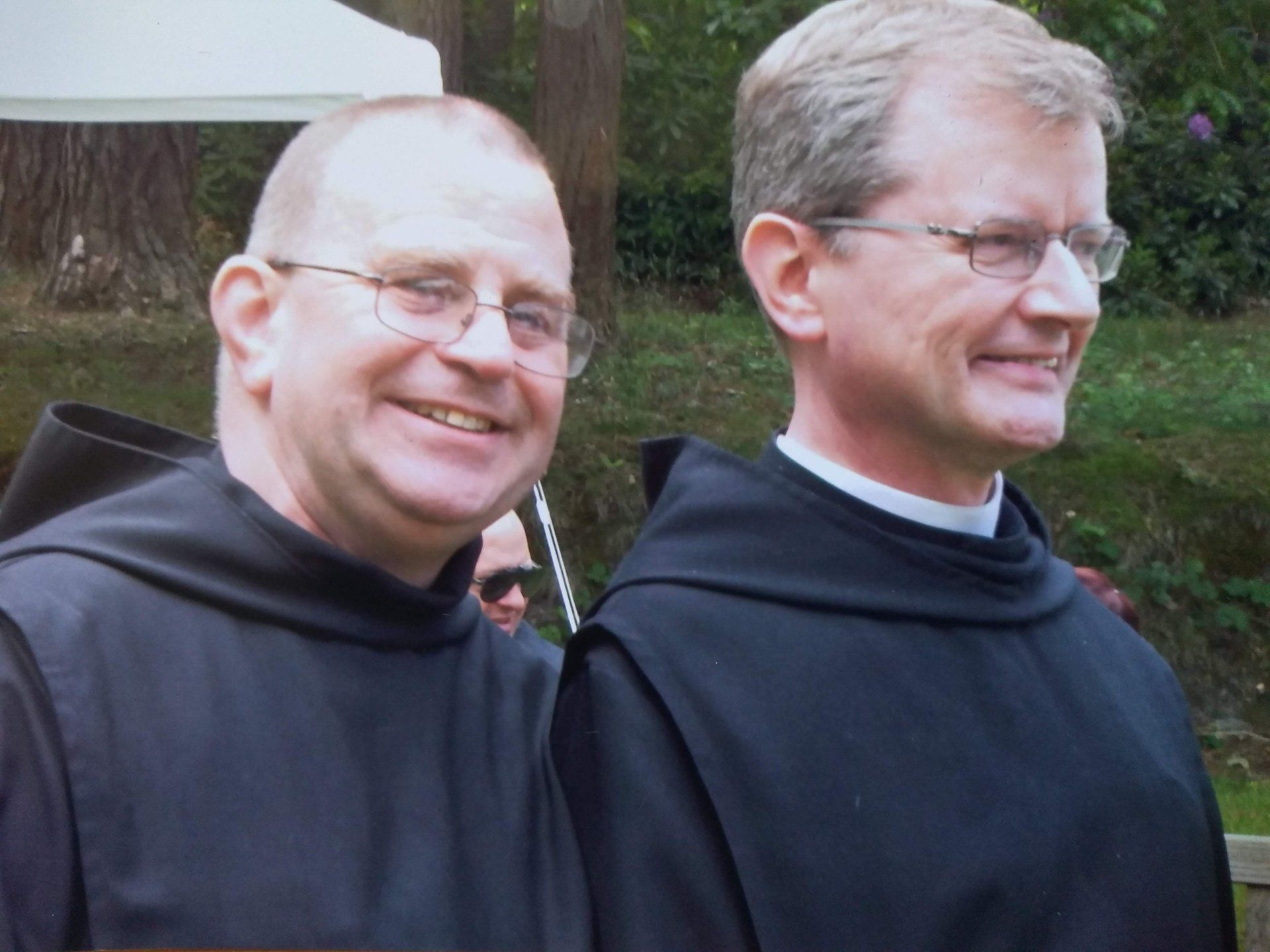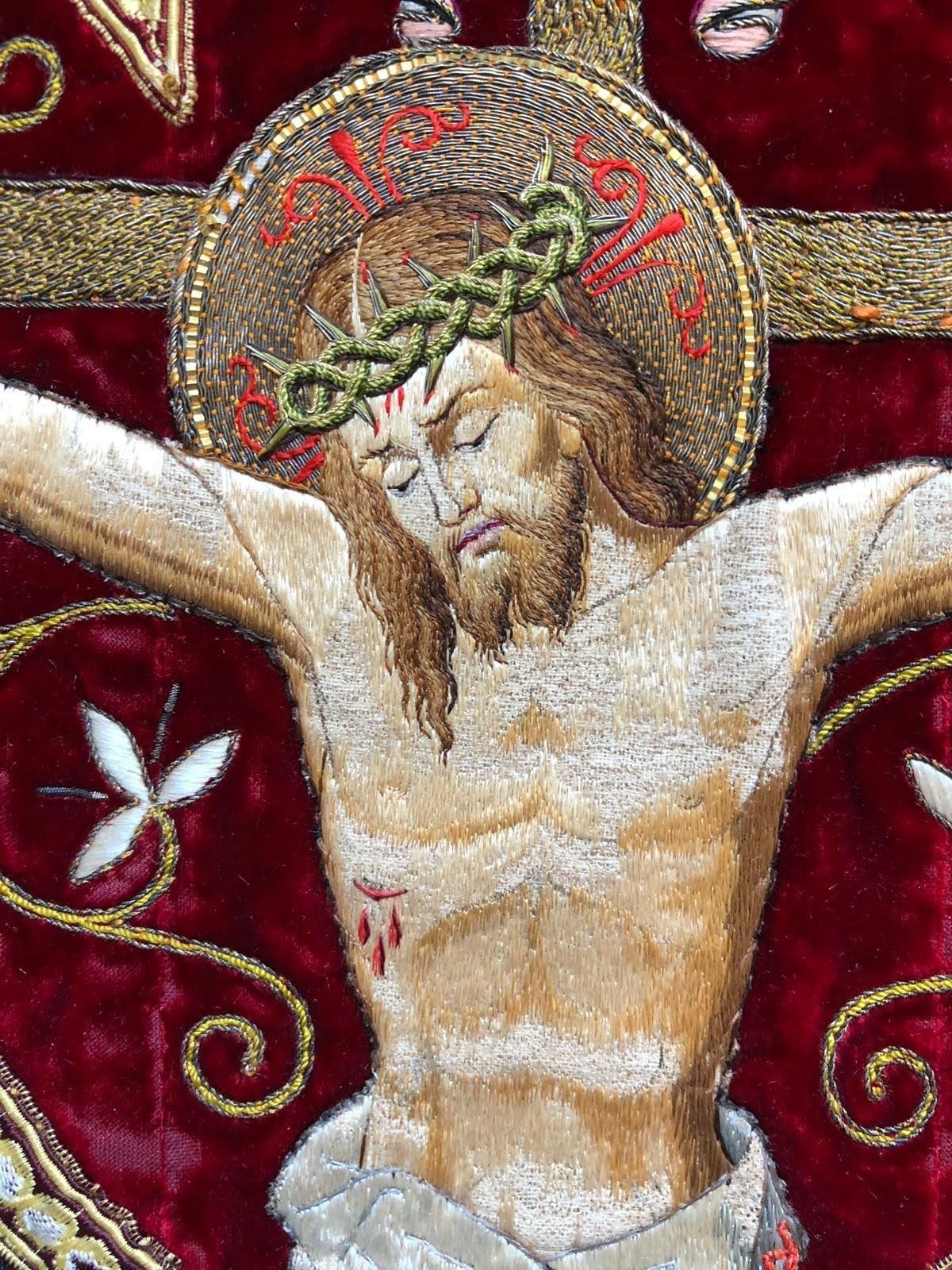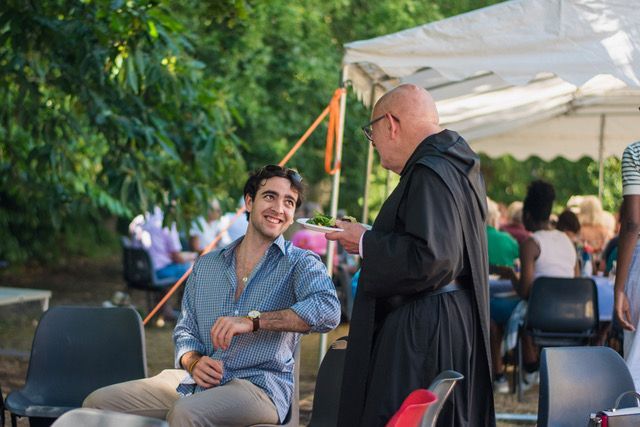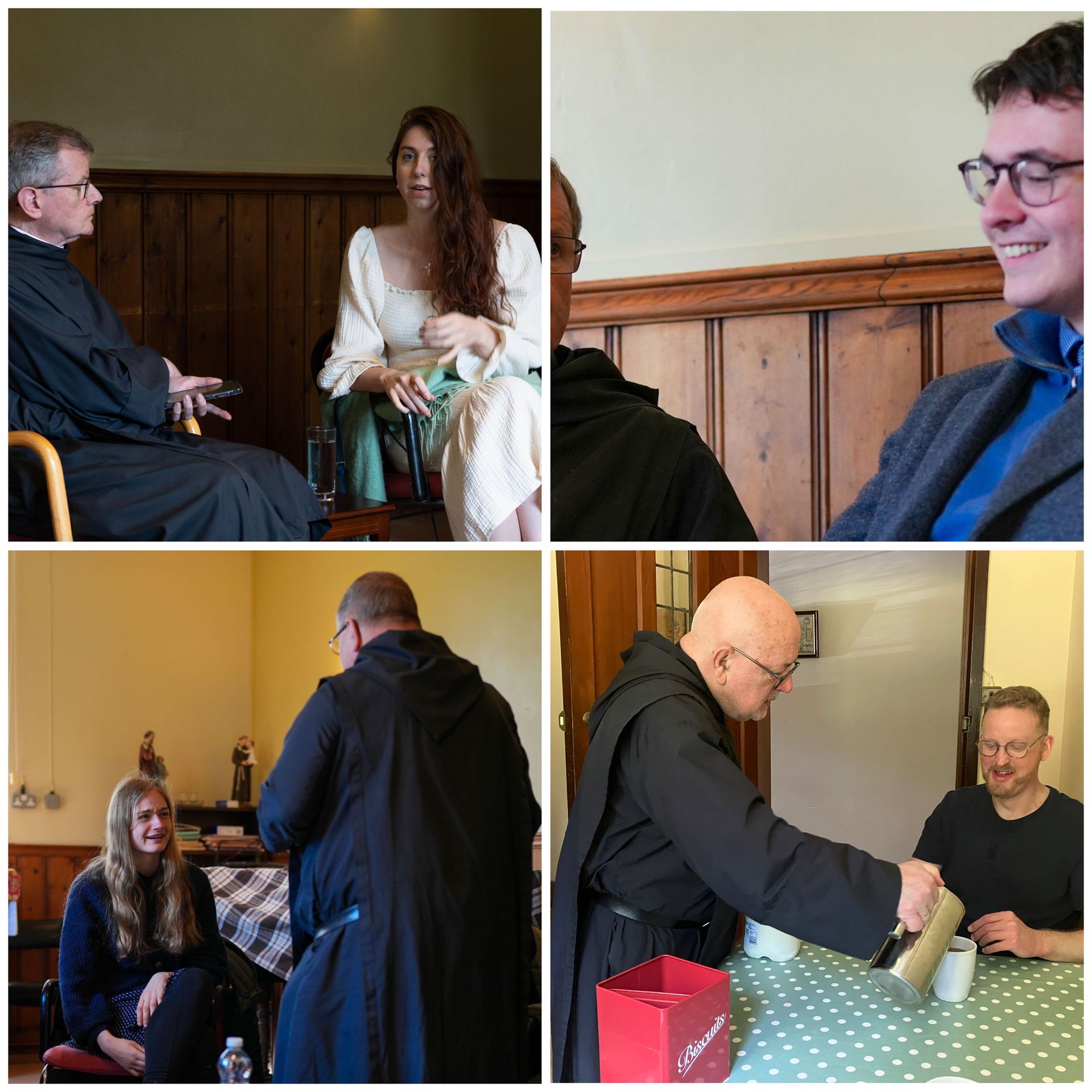Join us as a monk
Come and see....
Join us as a monk
Come and see....
Become a Benedictine monk at St Augustine's Abbey, Chilworth, UK
Become a Benedictine monk at St Augustine's Abbey, Chilworth, UK

YOU are VERY WELCOME. LOOK WITHIN
TAKE THE QUIZ
- answer 15 questions to see if you could be a Benedictine monk: click here.
Visiting and staying with us in person for short stays in our Monastic Guest House, normally several times over an extended period of time, is what we usually recommend if you want to explore your vocation and so you can experience monastic life at arm's length and get to know the monastic community as well as vice versa.
Staying in our Monastic Guest House is by invitation only and by donation. Please ask well in advance if you would like to stay a few days - please ask Dom Andrew by email at domandrewmcneill@gmail.com
You will need to arrange and pay for all of your travel requirements (if you are coming from afar, as well as staying with us, you might get a better overview if you ask to visit other monasteries in the UK too).
St Augustine's Abbey, Chilworth, UK is a living monastery of ten monks in addition to a number of other men who are interested in joining us and we very much welcome questions and visits from men considering becoming a Roman Catholic Benedictine monk. Some of us are ordained as priests, whilst others remain as brothers in the community, not ordained but living the same monastic life as those who are.
As well as reading what follows, you might like to follow our FACEBOOK page (https://www.facebook.com/ChilworthBenedictines), which aims to be less formal and hopefully shows more about what our daily life is like, including our human side.
The call of God to the monastic life is a specific one. The word ‘monk’ derives from the Greek word ‘monos’, meaning ‘one’, ‘single’, ‘only’, and refers to a monk’s single aim or intention. For the monk, this single aim or intention is the search for God – to respond to the desire he feels in his heart from God for God and union with Him now and for eternity in the life of the Blessed Trinity, the three Divine Persons, the Father, the Son, and the Holy Spirit, who invite all people to share in their communion of love.
'THE CALL' - WHAT TO DO WHEN YOU FEEL GOD CALLING YOU TO THE MONASTIC LIFE?
Well, the only way ahead is to test whether the call really is from God or not. See 1 John 4:1
St Benedict implies that the idea is usually persistent, not an idea readily dismissed from your mind. When you share the idea with others and they try to dissuade you, it does not discourage you. Difficulties from your family and friends are there to test the strength of the idea of vocation!
Next, you need the courage to contact a monastery and ask to stay as a guest. The community will be assessing you as soon as they know
you are seeking a possible entry but you need to assess them too. Ask yourself, 'Are these brothers going to guide me God, whom I seek?'
Do I see them living the life St Benedict wants his monks to live?
What sort of life is that?
Well, seeking God is the first criteria St Benedict establishes for someone wanting to be a monk. Not being a great preacher or teacher or singer or craftsman; these can be specialised in elsewhere, in a monastery, you seek God.
In the monastery, we are in choir together seven times a day plus Mass. You have to want to praise God from morning till night if the life is going to make you happy. This is St Benedict's second criteria, to be keen about what he calls 'the Work of God' - frequent, daily, worship of Him. Praising God, with the brethren, using all 150 psalms every week, plus singing for Mass.
The third criteria is obedience. St Benedict believes that obedience to the Abbot is just a very useful and fast way to become holy, because Jesus followed the same path. 'I came not to do my own will but the will of Him who sent me'. The monk does the same, only to the Abbot.
The fourth criteria is being willing to do those humble chores around the house, to take one's turn cheerfully - cooking, cleaning, etc. It's basically being patient and loving in all circumstances. It's learning to put aside ego and self interest day by day and becoming humble.
Of course, you should also see them bearing charitably with each other's faults and failings, as St Benedict commands in Chapter 72, which is the jewel of his teaching. Worth reading often.
If you see them trying to do that, as best they can, in the monastery you visited, ask to speak to the Novice Master. One last thing, read up on St Benedict and monastic spirituality, before you visit. Look at our website 'Our Benedictine Life', read the Rule of St Benedict here
and there is masses of information online.
May God guide you to Himself.
Freedom and the monk - is being a monk like being incarcerated?
Benedictine monk Fr John Seddon OSB writes:
"Many would perhaps see my life as lived in a voluntary prison, where freedom is non existent.
I certainly feel free, so I began thinking why my experience of monastic life is so different from outside perceptions.
I suppose my faith in God and my desire to be united to Him forever is the key to understanding why I feel free.
I want God, and every aspect of monastic life; choral prayer seven times a day, daily Mass, study, meditation, living with and serving my brethren, all help me on the path to God, because they constantly help me to love God and my neighbour.
God gives us free will so that we can take action and be responsible for it.
In this way, we shape our life. We become what we do. Good acts make us good, bad make us bad.
I believe the best good acts I can make are those which will bring me to God. A monastery offers me those in spades, therefore I not only feel free here, I am free, content and happy.
The Psalmist says to God, 'They are happy who dwell in your house, forever singing your praise'."
The Monastery
The Monastery
The Monastery is the place where a monk lives out this search with his brethren. To find God he has to become mindful of Him. The prayer, study and work that make up an ordinary day are all organised to help him remain closely united to God at all times. Silence is also practised to help him avoid sins of the tongue by avoiding unnecessary talk.
You may feel God is calling you to live in this way. It is a challenging and disciplined life and, if lived with integrity, will lead directly to God. However, it is one way. There are other equally valid ways. So, if you feel a call, it needs to be tested. How does one begin?
Firstly, if the call is persistent, discuss your feelings with a priest or monk you can trust and feel at ease with. You may be a little afraid at first of even admitting to yourself that you feel called. So, you need to find the right person. After perhaps lengthy discussions, you will be in a position to know whether a visit to us would be appropriate for you.
A good way to test your vocation without any obligation is to come and stay with us at St Augustine's Abbey, Chilworth for a few days in our monastic guest house, something you might like to repeat from time to time: BOOK A ROOM IN OUR GUEST HOUSE HERE by email to Dom Andrew at domandrewmcneill@gmail.com
KEEP SCROLLING DOWN THE PAGE TO FIND OUT MORE ABOUT SUITABILITY FOR A MONASTIC LIFE>>>>>>>>>>
Suitability for a monastic life
The following criteria is used when considering a man’s suitability for the monastic life. The criteria are a guideline used within the discerning and decision process. Don't worry if you don't meet all of the criteria; we welcome and sensitively consider all enquiries on an individual basis.





